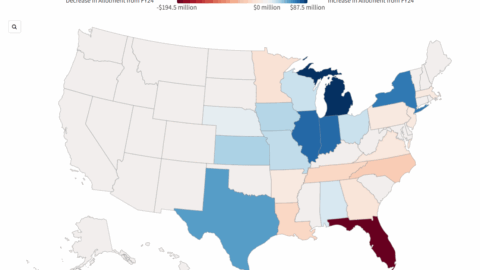Challenge to FDA’s GRAS rule moves forward after court rejects request for dismissal
Tom Neltner, J.D., is Chemicals Policy Director
In a critical ruling for food additive safety, a federal district court ruled on Wednesday that EDF, represented by Earthjustice, has standing in its legal challenge to the Food and Drug Administration’s (FDA) Generally Recognized as Safe (GRAS) rule. This 2016 final rule allows food manufacturers to make secret GRAS safety determinations for chemicals added to food, without notifying FDA or the public, and to use the chemical in food without anyone else’s knowledge. The court was considering a motion to dismiss from FDA arguing that plaintiffs did not have standing to bring the case. The judge found EDF and the Center for Food Safety (CFS) “plausibly allege harm to their members” and therefore “satisfy the injury-in-fact requirement for standing.” Our legal challenge now moves to the substance of our concerns with the flaws in the agency’s GRAS Rule.
The court found that members of EDF and CFS showed a risk of harm consistent with the requirements of the law in alleging that FDA’s “GRAS Rule poses a credible threat to their members.” Specifically the court stated that:
- Their members “have been and will be exposed to potentially dangerous substances that were introduced into the food supply without FDA oversight, public participation, or the opportunity for judicial review.”
- They “explicitly identify multiple substances that manufacturers determined to be GRAS and used in food despite concerns raised by FDA about their safety, as well as additional undisputedly dangerous substances that Plaintiffs reasonably anticipate will be introduced into the food supply under the GRAS Rule.”
- “[T]hese injuries are ongoing and imminent.
The court also rejected FDA’s arguments that our members have the power to avoid any potential injury from unsafe chemicals added to food and said that EDF is not required to show harm was unavoidable. Even if this were required, the court saw merit in our arguments that exposure to potentially unsafe GRAS chemicals was indeed unavoidable because the safety determinations and often the chemical names were publicly unknown.
The judge found FDA’s argument that a stronger rule might not make a difference as “overly simplistic,” stating that “I refuse to give credence to Defendants’ arguments that assume a lack of enforcement or incompetence on the part of FDA.”
We are pleased that the court ruled in our favor in this crucial first step. In light of the American Academy of Pediatrics’ policy statement published in July 2018 that called for FDA to greatly strengthen or replace the GRAS determination process, we hope that the agency will update its final rule. As we said when the agency issued the final rule in 2016, FDA lost an opportunity for safer food additives. With this court decision, we are one step closer to correcting that failure and achieving a safer food supply.












